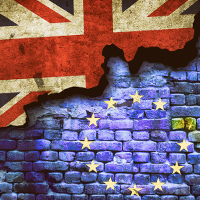
Brexit without the drama
A wise man once said nothing is as old as yesterday’s newspaper. That would render Brexit, which went into effect last Friday, a piece of ancient history. Read more

Oliver is the Executive Director of The New Zealand Initiative. Before joining the Initiative, he was a Research Fellow at the Centre for Independent Studies in Sydney, the Chief Economist at the Policy Exchange in London, and an advisor in the UK House of Lords.
Oliver holds a master's degree in economics and business administration and a PhD in Law from Bochum University in Germany.
Oliver is available to comment on all of the Initiative’s research areas.
Phone: +64 4 499 0790

A wise man once said nothing is as old as yesterday’s newspaper. That would render Brexit, which went into effect last Friday, a piece of ancient history. Read more

Welcome to the first New Zealand Initiative podcast where our team unpacks important events with a variety of guests. In this week’s edition, chief editor Nathan Smith is joined by executive director Oliver Hartwich to discuss what happens next in the Brexit process for the UK – which finally submitted its departure form to Brussels at the end of January – and if the European Union’s integrity can survive the body blow of losing one its strongest members. Read more

This Friday, the 31st of January 2020, is a historic day. After 47 years of membership, and with 1,317 days passed since the 2016 referendum, the UK is leaving the European Union. Read more
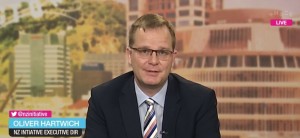
Our new report, Pricing out Congestion: Experiences from abroad, looks overseas to see how other cities have successfully implemented road pricing systems that work for their people and their environment. Oliver Hartwich explains on The AM Show, the benefits of a road pricing system and what New Zealand can learn from these international examples. Read more

New Zealand's road congestion is getting worse. Motorists are spending more and more time stuck in traffic. Read more

Oliver Hartwich talks Jesse Mulligan on Radio New Zealand through the findings in our new report, Pricing out Congestion: Experiences from abroad. The report focuses on the international experiences around congestion pricing, for example the use of road charges encouraging motorists to avoid traveling at peak times in busy routes, and shows how it could be implemented here. Read more
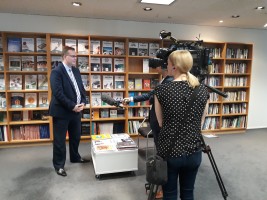
Some New Zealanders are spending more than one hundred hours a year sitting in traffic. Our new report, Pricing out Congestion: Experiences from abroad, says congestion charges could be the key to get Kiwis moving again. Read more

The greatest social scandal of our time barely raises eyebrows anymore. Every year for the past 16 years, urban consultancy Demographia releases their international ‘Housing Affordability Survey’. Read more

The Prime Minister had declared 2019 “the year of delivery”. Voters will eventually judge the government on whether it has succeeded. Read more

When Christine Lagarde became president of the European Central Bank in November, she inherited a challenging legacy from her predecessor Mario Draghi. The ECB’s key people are openly divided on the future direction of monetary policy. Read more
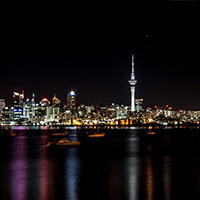
Over the past few months, you could not drive through any of our big cities without seeing some strange advertising messages. They were strange because, in our world of doom and gloom, they were spreading good news. Read more

On Monday, Lawyers for Climate Action (LfCA) launched in the New Zealand Parliament. It was the silk-wearing equivalent of protesting school children. Read more

No one has ever accused the Germans of boundless optimism. There is a reason the word Weltschmerz (world-weariness) was once coined in Germany. Read more

If you have never heard of a “carbolic smoke ball”, you are obviously not a lawyer. The 1892 British case Carlill v Carbolic Smoke Ball Company is a classic in the law of contract. Read more
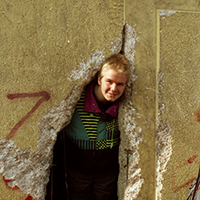
A couple of weeks ago, I spoke to a group of 13-year-old South Island students on a college excursion to the capital. Their teacher had introduced them to me as specially “gifted and talented” but their main gift appeared to be an inclination towards state action. Read more